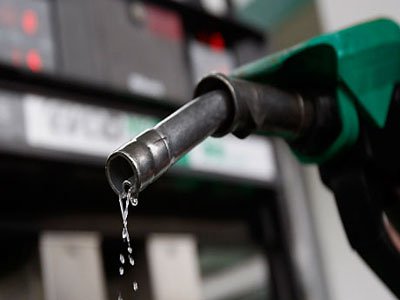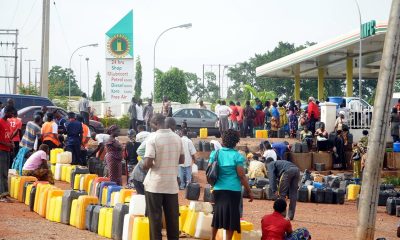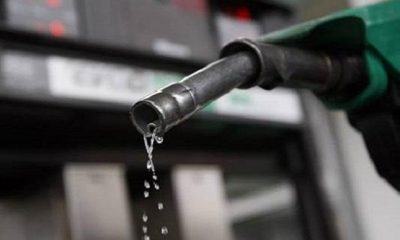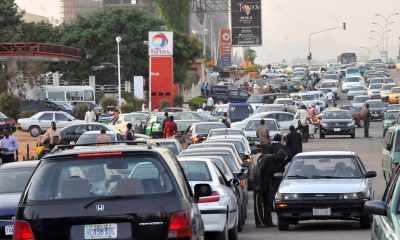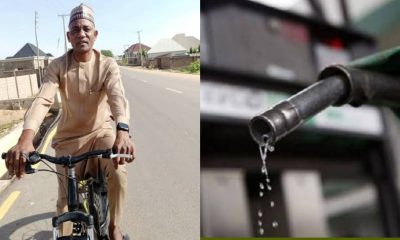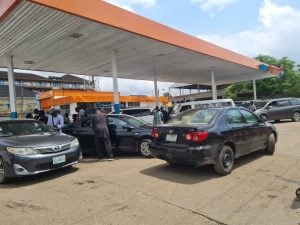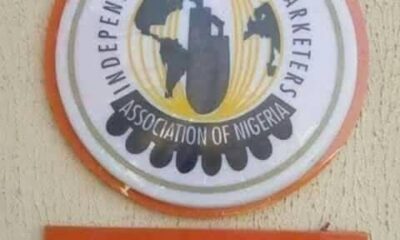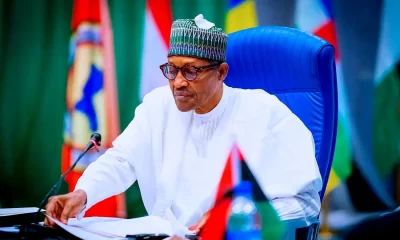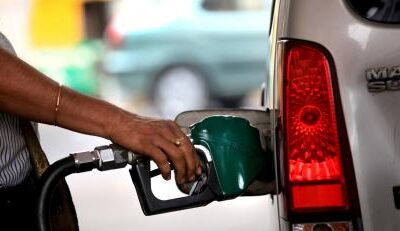NEWS
Fuel scarcity deepens across Nigeria

Fuel scarcity is worsening across Lagos and other parts of Nigeria as private depot owners have raised the ex-depot price of petrol from N630 to N720 per litre.
This development has led to long queues and the closure of many filling stations.
Over the weekend, the scarcity became more severe in Abuja and surrounding states, with some stations selling petrol at prices as high as N900 per litre.
Reports indicate that numerous filling stations in Lagos, Ogun, and other states have run out of stock, refusing to buy high-priced fuel from private depots.
Hammed Fashola, National Vice President of the Independent Petroleum Marketers Association of Nigeria (IPMAN), confirmed that many stations were closed due to a lack of fuel.
He emphasized the need for the Nigerian National Petroleum Company Limited (NNPC) to clarify the situation as it is currently the sole importer of petrol.
“Those that shut their stations do not have fuel to sell. When you don’t have fuel, you cannot open your station. The NNPC is the sole importer of this product and should explain what is going on,” Fashola said.
Currently, independent marketers cannot afford the high prices set by private depots, which are selling fuel between N715 and N720 per litre.
This has led to many stations shutting down as they cannot pass these costs onto consumers in the struggling economy.
Private depot owners used to sell petrol to independent marketers at N630-650 per litre, but the recent hike has made it unaffordable.
Despite numerous appeals, the NNPC has not increased direct supply to independent marketers, prioritizing major marketers instead.
Fashola urged Nigerians to avoid panic buying and purchase only what they need to ensure the available fuel can be distributed fairly.
Meanwhile, major marketers continue to sell petrol below N650 per litre, while independent marketers are forced to sell between N750 and N800 per litre due to the high ex-depot prices.
The situation has led to the NNPC prioritizing fuel supply to Abuja, directing many trucks there over the weekend, resulting in reduced supplies to other areas.
This scarcity follows a recent Reuters report indicating that Nigeria’s debt to petrol suppliers has surpassed $6 billion, creating additional challenges for the NNPC in managing fuel imports and pricing. As a result, private suppliers have reduced their participation in tenders, further straining fuel availability.
As the crisis unfolds, many residents are experiencing long queues and higher fuel prices, causing significant inconvenience and economic strain. The government and NNPC’s response to this situation will be crucial in determining how quickly the fuel supply can stabilize.



